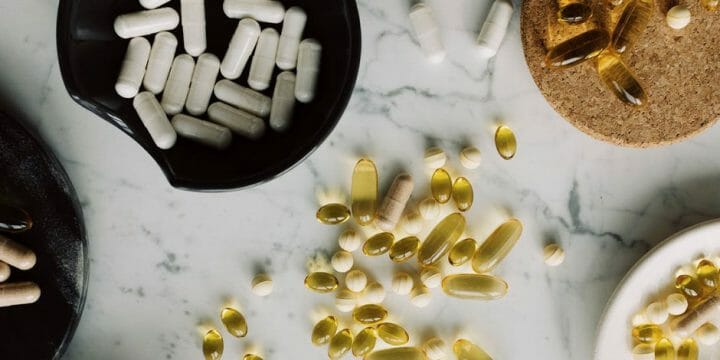As a certified fitness trainer, I've had clients asking for the best supplements that may help reduce aging.
While conducting my research, to give them a precise answer, I came across Dr. David Sinclair, a professor who has spent most of his academic career studying aging.
He has a list of the best supplements that were scientifically proven safe and beneficial for use.
David Sinclair's Supplements Stack

Nicotinamide Mononucleotide (NMN)
Dr. Sinclair consumes 1000 mg of NMN every day. NMN is a precursor of NAD+, an important chemical associated with cellular metabolism and energy generation that fuels numerous proteins necessary for maintaining and fixing our DNA and epigenome.
NAD+ levels fall with age, which contributes to the aging process.
A high dosage of NMN is 1,000 mg. 250 to 500 mg is also adequate to get the health and extend lifespan benefits of NMN. Human research using NMN employs 250 mg daily, as per PubMed [1].
Dr. Sinclair uses NMN rather than NR (another popular "longevity" vitamin). NR does not affect longevity [2]. Professor Sinclair believes that NMN is superior to NR.
Metformin

Dr. Sinclair takes 800 mg of metformin nightly, except for one day before exercise, to manage his health. Commonly prescribed for type 2 diabetes, metformin is associated with longer life and reduced age-related issues, likely due to improved blood glucose control and insulin sensitivity, as per the National Library of Medicine [3].
Research shows it inhibits mitochondrial complex I and activates AMP-activated protein kinase, potentially boosting health and lifespan [4].
However, as metformin is prescription-based and may cause side effects like stomach pain and reduced vitamin B12 absorption, consulting a healthcare professional is essential.
Vitamin D3
Vitamin D has been shown to increase longevity in simple organisms [5]. Vitamin D can reduce the likelihood of a variety of aging-related disorders.
In humans, vitamin D deficiency has been linked to an increased danger of type 2 diabetes, cardiovascular disease, autoimmune illnesses, and Alzheimer's disease.
Many genes are activated by vitamin D, which has significant health advantages. Most countries recommend too little vitamin D (e.g., 400 to 800 IU (international units) daily).
From my professional standpoint, I concur with most vitamin D specialists who recommend taking 4,000 to 5,000 IU daily and having your vitamin D levels evaluated at least once a year.
Learn More: Best Vitamin D Supplement Brands 2025
Coenzyme Q10
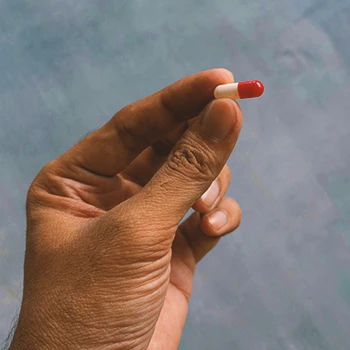
Dr. David Sinclair has been connected to supplementing with coenzyme Q10 but hasn't mentioned it in recent interviews.
Coenzyme Q10, known for boosting mitochondrial performance, is under scrutiny. Despite its antioxidant properties, solid research, especially using disease model mice, hasn't proven it extends life. In fact, a study published on ScienceDaily suggests it doesn't affect life expectancy, and it might even shorten it [6].
Here's a kicker: recent experiments show antioxidants like Coenzyme Q10 might actually speed up aging. So, think twice before using it as a life-extender.
Vitamin K2
"Vitamin K2 works best when combined with vitamin D3 to increase the longevity-promoting benefits of both vitamins. For my blood vessels, I usually take vitamin K2 in conjunction with vitamin D3."
- David Sinclair, Doctor of Philosophy & Biologist
Current data suggests that taking vitamins D and K together may be more useful for bones and cardiovascular health than taking either of them alone.
Learn More: Best Vitamin D3 and K2 Supplements 2025
Statin

Sinclair stated on the Joe Rogan Experience podcast that he has been using statins as a prophylactic measure since he was 29, owing to a family history of heart disease.
As per the Centers for Disease Control and Prevention, this family of medicines blocks cholesterol synthesis in the liver. Sinclair revealed to Rogan how he discovered his tendency to cardiac issues. He's been taking 80mg of a statin since then.
A modest body of research in PubMed shows that statins may also help extend lifespan by decreasing the risk of other age-related illnesses, including cancer and dementia [8].
While statins like simvastatin are linked to longevity, they also carry risks such as myopathy, especially in long-term use.
Resveratrol
Resveratrol is a stilbenoid found in tiny amounts in grape skin. Resveratrol has been demonstrated in studies in the National Library of Medicine to reduce cardiovascular disease and lessen the risk of cancer and neurodegeneration [9].
Alpha Lipoic Acid (ALA)
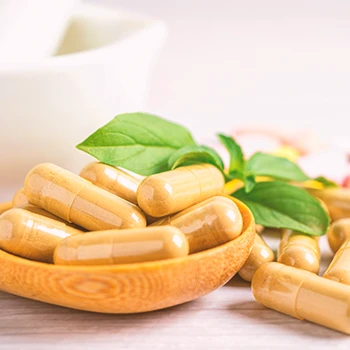
Sinclair once mentioned he takes 500 mg of alpha-lipoic acid (ALA) daily.
Recent studies published in PubMed indicate ALA's anti-aging effects might not be as strong as once believed, and high doses could even shorten lifespan [10].
Sinclair once endorsed ALA, but his latest views are unknown. However, I always advise my clients considering ALA supplements to proceed with caution and moderation.
Pairing Alpha Lipoic Acid with Acetyl-L-Carnitine may offer synergistic benefits, amplifying their anti-aging effects.
TMG (Trimethylglycine or Betaine)
Dr. Sinclair previously addressed using TMG as a precaution, albeit this has not been confirmed. The standard dosage is 500 milligrams.
TMG, usually called betaine, is a naturally occurring molecule that works as a donor for several biochemical activities in the body, including liver function and cellular reproduction [11].
Spermidine
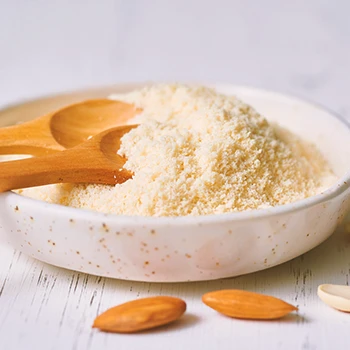
Quercetin and Fisetin
Quercetin and fisetin are chemically extremely similar. They are sometimes referred to as "senolytics" since it is hypothesized that they can eliminate senescent cells.
Senescent cells are those that amass with age and produce chemicals that harm normal, healthy cells [13].
"Every morning, I take 500 mg of Quercetin and Fisetin blended into coconut yogurt. They are naturally occurring flavonoids obtained from vegetables and fruits that have anti-inflammatory and antioxidant properties."
- David Sinclair, Doctor of Philosophy & Biologist
Low-dose Aspirin
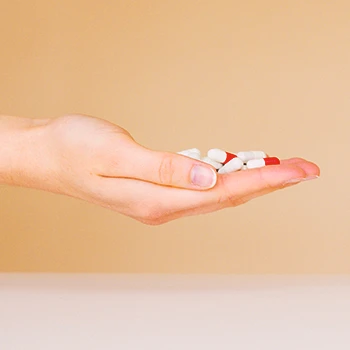
Dr. Sinclair mentioned using baby aspirin to minimize inflammation. The normal daily dosage of infant aspirin is 81 milligrams.
When used in modest dosages, aspirin is a nonsteroidal anti-inflammatory drug (NSAID) found to lower inflammation and the likelihood of heart disease and stroke [14].
However, before using baby aspirin, I always advise my clients to speak with a healthcare practitioner because it might cause gastrointestinal discomfort and bleeding concerns in certain people.
David Sinclair's Approach to Health, Exercise, and Nutrition Tracking
Dr. David Sinclair's holistic lifestyle goes beyond supplements, focusing on exercise, nutrition, and health monitoring for a longer, healthier life.
- Health - Sinclair uses facts for health decisions, employing continuous glucose monitors (CGMs) to maintain steady blood sugar, reducing type 2 diabetes risk and aiding weight control. He also conducts thorough blood tests for biomarkers like hormone levels and metabolic indicators, adjusting his diet, fitness, and supplements accordingly.
- Exercise - Exercise is key in Sinclair's longevity plan. He sticks to a mix of weight training and aerobics, favoring running and weightlifting. Combining aerobic and anaerobic exercises boosts muscle, heart health, and overall fitness.
- Nutrition - Sinclair opts for a mostly vegan, plant-based diet, eating two meals a day and often skipping breakfast for intermittent fasting. His diet includes fruits, vegetables, plant proteins, and whole grains, with minimal red meat and processed foods.
- Stress and sleep management - To achieve a comfortable night's sleep, he strives for eight hours of restful sleep every night, a goal I also emphasize in my coaching for optimal health and stress management. To manage stress, he engages in yoga, meditation, and deep breathing, enhancing mental health and potentially extending life.
Potential Modifications to His Supplement List

While Dr. David Sinclair's supplement list is thorough and scientifically supported, there is always an opportunity for improvement as discoveries arise. Here are some potential enhancements to consider while assessing your personal supplement program.
Also Read: Ben Greenfield’s Supplement List: Recommendations and Advices
- Incorporating prebiotics and probiotics: Gut health is crucial for overall well-being and longevity. Adding prebiotics and probiotics can support healthy gut flora, leading to better digestion, nutrient absorption, and immune function. A balanced gut microbiome can also reduce inflammation and boost overall health.
- Focusing on holistic health: Remember, supplements are just one piece of the health puzzle. A balanced diet, regular exercise, effective stress management, and quality sleep are all vital for a comprehensive approach to wellness.
- Personalizing supplement recommendations: Everyone's nutritional needs vary based on lifestyle and genetics. Genetic testing and consulting with healthcare professionals can help tailor your supplement regimen to your specific needs, optimizing your health and longevity.
- Keeping up with new research: Staying informed about the latest scientific developments is key. For instance, the field of senolytics is rapidly evolving, with new anti-aging compounds being discovered. Keeping up-to-date allows you to make informed decisions about which supplements to include or exclude from your routine.
Related Articles:
FAQs
What Does David Sinclair Take for Aging?
David Sinclair takes Nicotinamide mononucleotide (NMN) for aging. Increasing Nicotinamide Adenine Dinucleotide (NAD+) levels by NMN use may delay and even counteract certain aging elements. Dr. David Sinclair takes NMN supplements at high doses (1,000 mg) to increase his NAD+.
Why Does David Sinclair Take Metformin?
David Sinclair takes metformin to help activate sirtuins. Sirtuins are disease-fighting enzymes.
What Does David Sinclair Eat in a Day?
David Sinclair eats a plant-based diet, drinks plenty of water, and takes vitamins with olive oil or yogurt daily. And may occasionally snack healthily.
References:
- https://pubmed.ncbi.nlm.nih.gov/33888596/
- https://pubmed.ncbi.nlm.nih.gov/33788371/
- https://pubmed.ncbi.nlm.nih.gov/23900241/
- https://www.ncbi.nlm.nih.gov/pmc/articles/PMC3736576/
- https://pubmed.ncbi.nlm.nih.gov/27783938/
- https://www.sciencedaily.com/releases/2002/01/020108075801.htm
- https://openheart.bmj.com/content/8/2/e001715
- https://pubmed.ncbi.nlm.nih.gov/34303383/
- https://www.ncbi.nlm.nih.gov/pmc/articles/PMC6261232/
- https://pubmed.ncbi.nlm.nih.gov/22785389/
- https://pubmed.ncbi.nlm.nih.gov/22781841/
- https://www.ncbi.nlm.nih.gov/pmc/articles/PMC8186080/
- https://www.ncbi.nlm.nih.gov/pmc/articles/PMC4748967/
- https://www.ncbi.nlm.nih.gov/pmc/articles/PMC4592725/
About The Author
You May Also Like

